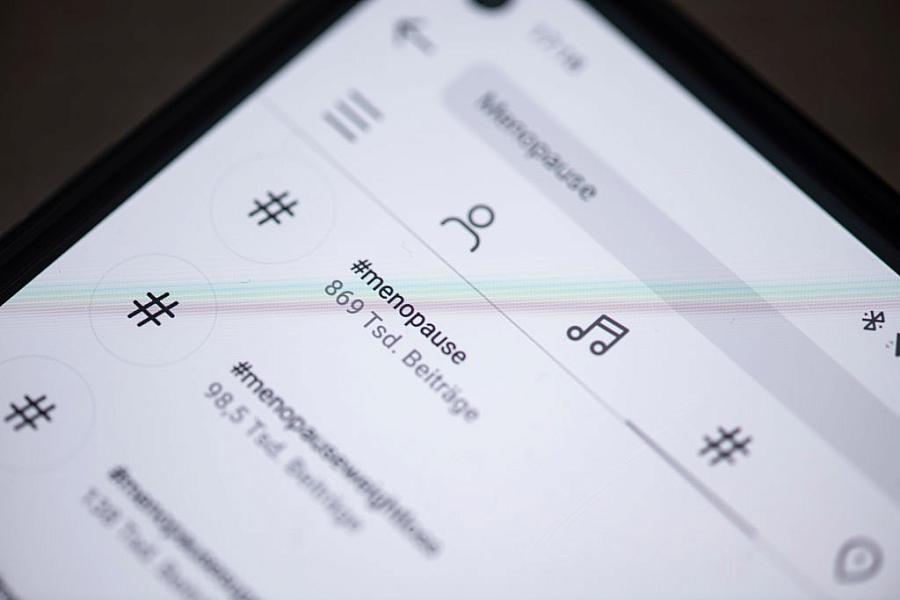The conversation on menopause is growing, but finding voices still isn’t easy

(Photo by Fabian Sommer/picture alliance via Getty Images)
I read many bills as a California statehouse reporter, but one caught my attention last year. It was a bill related to menopause symptom treatment. Although half the population experiences menopause, it’s not a common topic in politics, even public health policy.
That bill passed the legislature handily, but it was vetoed by Gov. Gavin Newsom. Still, it sent me down a path of looking into other state legislation, and even national efforts to tackle issues related to menopause.
Only a couple of states had relevant laws and they’d passed them just within the last few years. Former President Joe Biden also signed an executive order to encourage more women’s health research, including into menopause. Celebrities like Halle Berry were getting in on the conversation.
In my reporting on that first bill, I put out a call in my station’s newsletter for people who wanted to talk about their experiences trying to get treatment for their symptoms. I received a handful of responses from people with really interesting stories. What’s more, when I told people about what I was working on, I was met with even more enthusiasm and first-person stories of how hard it is to get care. Many didn’t feel that they’d been listened to or taken seriously.
This all told me that there are many, many people who want to have more conversations about menopause altogether, including in politics, but haven’t found the venue. People want to know more about it, what’s being done to make the experience of going to the doctor for it better, and where they can go to learn more. That means there are ample reporting opportunities on these topics, provided reporters can find real people’s stories to bring these issues to life.
One of the barriers I hit while reporting on this topic was finding a pool of people experiencing menopause symptoms, along with related issues such as insurance coverage or doctors without training on the topic. I knew from speaking with experts and reading studies that these are problems experienced by many people in this stage of life, but connecting with them was tougher than I thought.
I asked our listeners to get in touch with their own stories, and they did. With help from the California Health Equity Fellowship, I also put out a more formal survey. While I learned from these responses and talked with a few of the people who reached out, this still yielded a narrow pool.
That led me to my favorite part of the project: I went looking for third spaces, or places away from home and work where people usually recreate and find community, in search of sources. I worked with an engagement journalism expert at the Center to come up with a list of places and reached out to as many as I could to set up times for me to join. I really benefitted from having time and resources through the fellowship to pursue this.
I had the most success with the Sacramento Public Library system, where I joined crafting, gaming and reading groups in search of sources. You’ll find some of those voices in my first story, where I spoke to several women at a longstanding knitting group.
But I also learned through this process that people actively going through menopause are probably some of the least likely to be in these spaces. Simply put, they’re busy. Because of their age, they’re often at the height of their careers or working several jobs or still have children in the house. Many are caretakers — sometimes for their parents in addition to their children. Many of these factors are compounded for women of color. Ensuring my collection of sources were diverse presented additional challenges.
If I had had more time to work on this project, it would’ve gone entirely to deepening my sourcing effort. Still, I found a lot of help through organizations and academic sources in connecting with people for this project, and I look forward to working with them again on future menopause stories.
One of the things I’m most proud of with this project is that it dug into a conversation that feels like it’s in its early stages, but growing. People are hungry to talk about these issues — in my experience, the generation experiencing this cycle of life now is much more comfortable talking about it than previous ones. They’re also finding a surprising dearth of information.
That came up often with my sources. One woman was in the throes of the “pink tax” policy debates about a decade ago said she felt menopause is having a similar moment now.
For my reporting, that meant menopause as a policy topic was far along enough for me to find bills, experts, studies and advocates. But those were still limited. I had to be careful not to return to the same sources too often. I did this by trying to spread out my stories over three topics — research, insurance and education.
Reflecting on my experience, I am also grateful to have come away with new ideas for reporting on menopause symptom treatment, both as a public policy topic and more broadly in public health.
Nearly every person I interviewed started the conversation by stressing that half the population, if they live long enough, will experience menopause. And yet, it’s often still seen as a niche topic. That leaves ample stories to be told about the people going through it.

